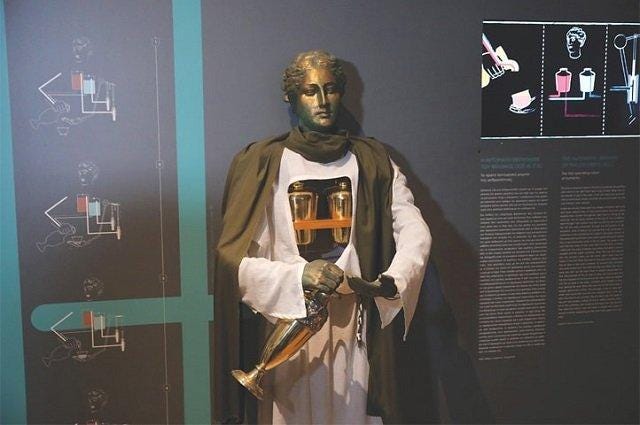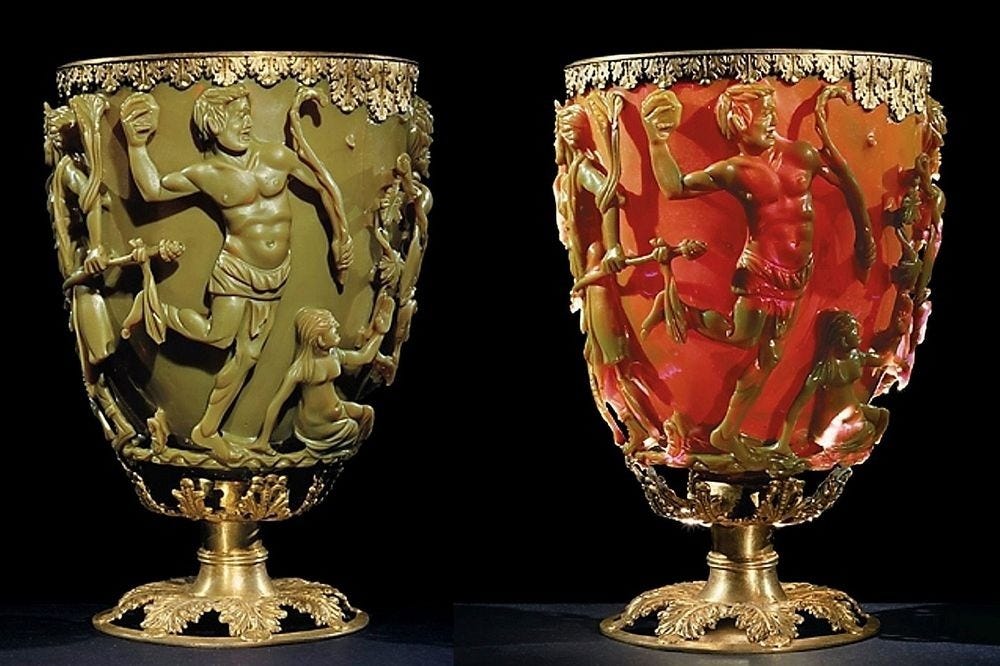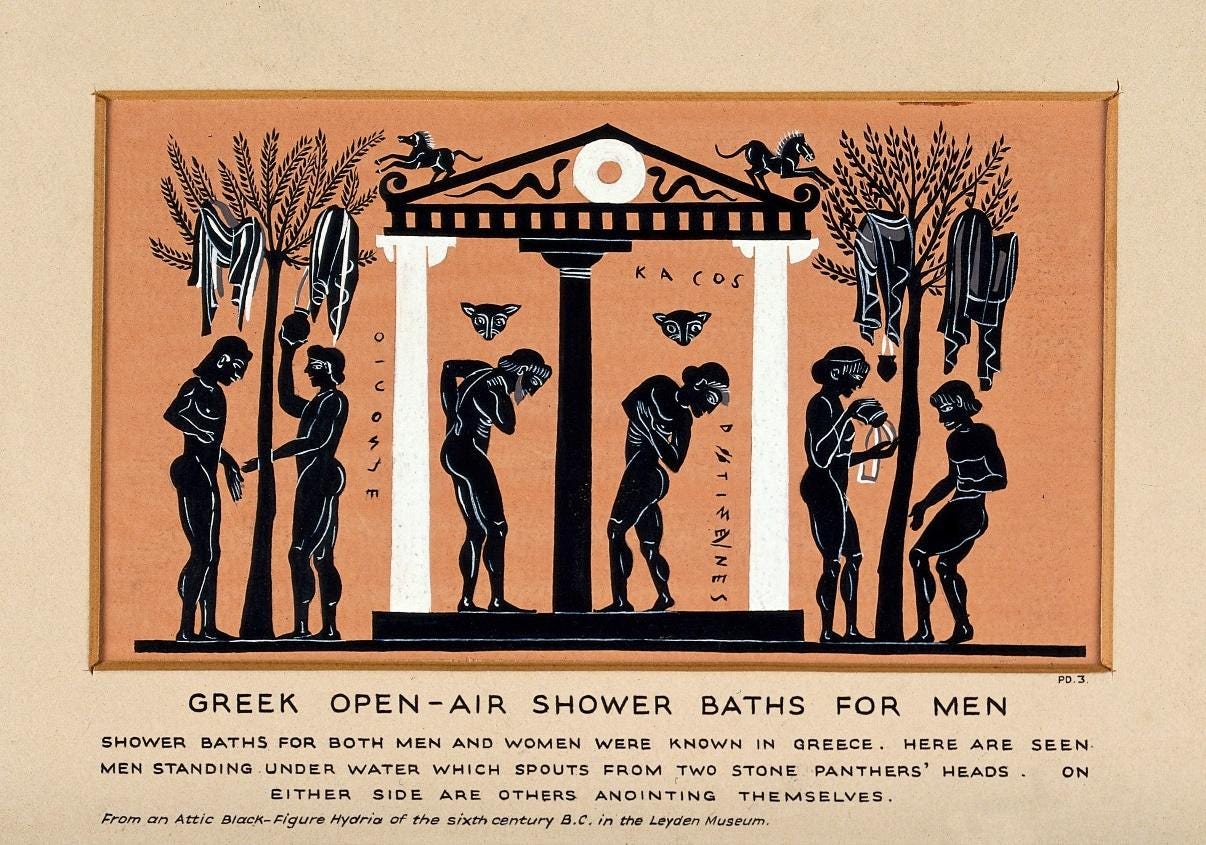
Dear Classical Wisdom Reader,
If all has gone well, then by the time you are reading this newsletter I have already traversed 11,269 km, following the curvature of the earth from the Chilean coast to the antipodean land of my husband’s birth. It’s been six years since we were here last and there is a lot of catching up to do with family and friends!
While I may or may not have seen Antartica (I’ll have to give you an update on that), I am certain that future Anya (or current Anya when you are reading this) is experiencing severe jet lag and is extremely happy I’ve prepared this mailing for you in advance.
In fact, I’m so impressed and elated with technology, not only for safely taking me and my family to the far side of the planet but also for allowing me to write to you from both a different time and place, that I thought I would dedicated today’s issue to the topic.
We appreciate our modern contraptions, but we should also always remember that we stand on the shoulders of giants… and we would not be here if it wasn’t for the inventors, thinkers, and out of the box geniuses that came before us.
So please enjoy these five surprising ancient inventions from Greece and Rome, below.
All the best,
Anya Leonard
Founder and Director
Classical Wisdom and Classical Wisdom Kids
P.S. This week we have a special deep dive into philosophy for you! Time to look at those ancient giants and see who comes out on top in this week’s members in-depth article: The Plato - Aristotle Face Off!
If you aren’t a member, then make sure to join in time to get in on all the philosophical action… happening in this space:
5 Surprisingly Ancient Inventions from Greece and Rome
By Lydia Serrant
Robots, Computers, Showers and Vending Machines? You would be forgiven for believing this article should be featured in Modern Magazine and not a blog about ancient societies!
Well today, we challenge general perceptions about modern technology and introduce the Top 5 most surprisingly ancient Greek and Romans technologies that have baffled scientists and caused a flurry of historical debates.
Ever since the famous Antikythera mechanism, the world’s first known analogue computer, emerged from on board an ancient Greek shipwreck in 1901, historians are now coming to terms with the idea that ancient technological knowledge was far more advanced than previously thought.
The mechanism, which at first was thought to be a simple lump of rock, was identified in 2012 as part of a complicated system of cogs that could perform more calculations than a Swiss watch.
The discovery led to an increase in interest in ancient technologies. More funding has allowed researchers to re-examine old discoveries and make new ones, and the results have been enlightening.
So, without further delay we present 5 additional technological discoveries from Greece and Rome that are surprisingly ancient.
Automatic Servant of Philon (3rd Century BC) by Philo of Byzantium
Invented by Philo of Byzantium in 3rd Century BC, The Automatic Servant of Philon is currently recognised as the world’s first robot. The automatic servant of Philon is a human shaped automaton that dispenses wine when a cup is placed in its hands.
The Greeks were known for diluting their wine with water, and the automaton is designed to do just that. Once the cup is placed in the empty hand, wine is poured followed by water. The liquids are dispensed in turn using a series of pipes hidden within the robot that lead from the robot’s arm to a central chamber in the torso. The pipes are controlled using air valves that are opened when the arm lowers with the weight of the cup, and closed again once the cup is removed.
A series of vending machines that dispensed Holy water were built by Hero of Alexandria using a similar mechanism, whereby values were activated when a coin was dispensed. These machines were common at the entrance of Temples and holy places.
Aeolipile (The First Steam Engine)
Also known as a ‘Hero’s Engine’ is the first recorded steam engine in history. It was a simple yet innovative system that relied on a radical steam turbine that spun when the central water container was heated. It was invented in the 1st Century AD and was described by Hero of Alexandria who is credited for its invention.
The Aeoliple is believed to be invented as a demonstration of steam power, and not intended for any practical purpose. But despite the lack of utility, this machine is evidence of the revolutionary scientific experimentation that was happening at the time.
There is speculation that this invention did have a predecessor, as a similar device was mentioned by Vitruvius in his treatise De Architectura. However, historians speculate it may be the same device, which would mean that the invention is slightly older than currently understood.
Astrolabe
Similar to the Antikythera Device, the Astrolabe was an intricate object that was used by astronomers and navigators to measure altitude.
The mechanism was designed to be used during both the day and night. The Astrolabe made specific altitudinal calculations based on the horizons of celestial bodies. It was also used to identify stars and planets, and could give local latitude data based on a given local time (and vice versa!)
The earliest Astrolabe was invented by Apollonius of Perga somewhere between 220 and 150 BC. The design is an amalgamation of two earlier inventions: the planisphere (a device used to calcite visible stars using two rotating disks) and a dioptra (a tubed device used to measure angles).
The astrolabe isn’t just a great invention on its own, it is also evidence of how the ancient scientific community collaborated and took inspiration from others discoveries, just like scientists today.
The Lycurgus Cup
On the surface, the Lycurgus cup is just that – a cup. But if you look closely, the cup is an impressive example of ancient Roman nanotechnology.
The Lycurgus Cup (named after the mythical figure King Lycurgus who adorns the cup) changes from red to green depending on the light source. Made in 4th century Rome, the discovery of this colour changing cup baffled scientists for decades.
However recent observation has discovered that the colour changing effect is produced by a painstakingly intricate process whereby minute shards of silver and gold nanoparticles, about 70nm in diameter, are diffused within the glass causing the light to scatter and create the illusion of changing colours. To give you an idea of the scale of this operation, 70mn is less than one thousandth the size of a grain of table salt.
What is amazing about this discovery is that it was previously believed that the theory of light scattering in relation to nanoparticles wasn’t discovered until 1908, and finally proven in practice in 1980.
Scientists and historians are unsure what method the Romans used to create the metallic particles, but they all agree that the ancient Romans were the true pioneers of ‘New’ Nanotech!
Showers
It may not sound overly exciting, but the introduction of showers possibly changed the lives of Ancient Greek people and beyond.
The first shower was a rudimentary design, whereby the person would stand under a hole in the wall whilst a servant poured water through the hole, however the invention of lead piping soon revolutionised this method of showering.
Archaeologists excavating the site of Pergamon stumbled upon evidence of Greek showers in a bathhouse. The site was relatively close to the sea, and a series of underground pipes collected the seawater and dispensed it within the bathhouse for public showering. This evidence correlates with evidence of lead plumbing found at gymnasiums and fragments of carved shower heads found at excavated sites.
There is also evidence via scripture and pottery illustrations that this same plumbing technique was common to Greek homes, not just public bathhouses. It is becoming increasingly accepted that city-states may have kitted out their pre-existing aqueduct systems with additional pipes to carry water to homes for private showers, as well as public buildings.
Classical Wisdom is a reader-supported publication. To receive new posts and support the Classics, consider becoming a free or paid subscriber.
Más info en frasco@menadelpsicologia.com / Tfno. & WA 607725547 Centro MENADEL (Frasco Martín) Psicología Clínica y Tradicional en Mijas Pueblo #Psicologia #MenadelPsicologia #Clinica #Tradicional #MijasPueblo
*No suscribimos necesariamente las opiniones o artículos aquí compartidos. No todo es lo que parece.





No hay comentarios:
Publicar un comentario